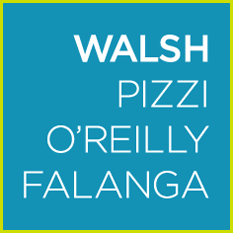Client Alert – Governor Phil Murphy Signs S2304 Into Law Expanding New Jersey’s Temporary Disability Insurance and Family Leave Insurance in Response to COVID-19 Pandemic
On March 25, 2020, Governor Phil Murphy signed into law S2304, a bill intended to broaden the availability of access to benefits under the state’s Temporary Disability Insurance (“TDI”) and Family Leave Insurance (“FLI”) programs. The law targets epidemic-related illnesses such as COVID-19 and makes a number of changes to the existing statutory scheme for state-issued disability insurance benefits, family leave insurance benefits, and use of accrued paid sick time. The law went into effect immediately.
S2304 expands the definition of “serious health condition” for which an employee may obtain benefits for his own condition (TDI) or for the condition of a family member for whom the employees provides care (FLI). “Serious health condition” now includes, during a state of emergency, an illness caused by an epidemic of a communicable disease, a known or suspected exposure to such a disease, or efforts to prevent the spread of that disease, which requires in-home care or treatment of the employee or a family member due to an order from a public health authority or healthcare provider. The new law eliminates the current one-week waiting period for disability benefits in cases related to an epidemic.
The new law also expands New Jersey’s earned sick leave law to permit the use of paid sick time during a declared state of emergency. Earned sick leave may now be used where the employee is unable to work because, during a declared state of emergency, the employee undergoes isolation or quarantine, or cares for a family member in quarantine, as a result of suspected exposure to a communicable disease and a finding by a healthcare provider or public authority that the presence of the employee or family member in the community would jeopardize the health of others.
While an employer generally may deny an employee earned sick leave in certain situations – specifically, where (1) the employee is salaried and among the top 5% highest paid employees, or one of the seven highest paid employees; (2) denial is necessary to “prevent substantial and grievous economic injury” to the employer; and (3) the employer provides notice of its intent to deny leave – under this new law, this section is inapplicable where the leave sought is due to an order that the employee or the employee’s family member remain isolated or quarantined at the direction of a health care provider, the Commissioner of Health, or other authorized official. Further, the section does not apply where a “place of care” of the employee’s family member is closed due to a declaration of a state of emergency or other order during an epidemic or exposure, or suspected exposure, to a communicable disease.
For further information about these or other issues arising out of the COVID-19 crisis, please contact Tricia O’Reilly at [email protected] or (973)757-1104, M. Trevor Lyons at [email protected] or (973)757-1014 and Caitlin Cascino at [email protected] or (973)757-1024.
Walsh Pizzi O’Reilly Falanga LLP has prepared the content of this alert for general informational purposes. The content should not be considered advice, recommendations, or an offer to perform services. You should not act upon any information provided in this alert without seeking professional legal counsel from an attorney licensed to practice law in your jurisdiction. No representations are being made as to the completeness or accuracy of the information contained herein.

